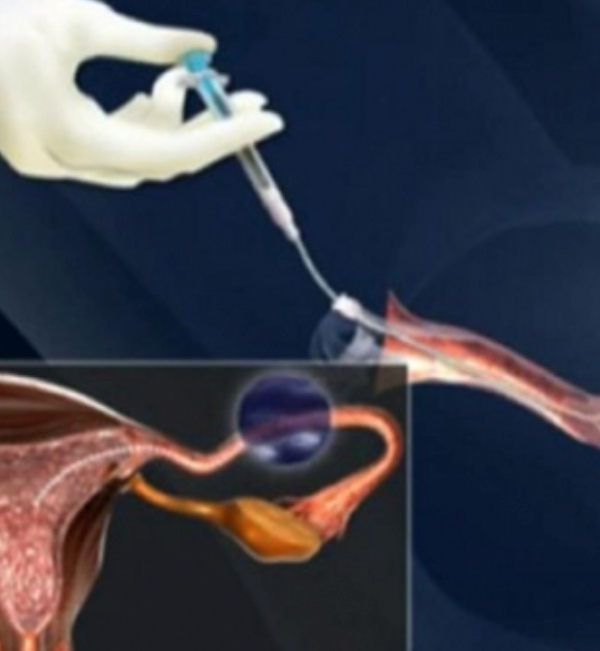Intrauterine insemination (IUI) is the placement of washed spermatozoa into the uterine cavity using a catheter, usually following mild stimulation of the ovaries. 1-2 leading follicles are aimed to be attained wild mild stimulation. For this purpose, oral agents, such as, Clomen/Serophene/Letrozole or daily injections, such as, Gonal-F/Puregon/Menopur/Menogon/Fostimon/Merional are used. The pregnancy rate per started cycles is higher when daily injections are used when compared to oral medications; hence, we prefer to use daily injections. Once the leading follicle(s) attain a mean diameter of 17-18 mm, the final shut injection (Ovitrelle/Pregnyl) is administered and IUI is scheduled 36-40 hours after.
IUI may be recommended in couples suffering from unexplained infertility, mild male factor infertility or early-stage endometriosis.
On the day of IUI, the male produces sperm by masturbation. The sperm is washed and the debris is taken out leaving concentrated good quality sperm. This concentrated good quality sperm (0.5 ml) is loaded to a catheter and placed it into the uterus with full bladder under trans-abdominal ultrasonographic guidance. IUI is a painless procedure with no anesthesia needed. Following a short rest period (30-60 minutes), the patient is discharged and may return to professional daily life even on the day of IUI.
The monthly fecundity rate with mild stimulation coupled with IUI is 15-17%. Up to 3 cycles of IUI might be considered. However, if the first cycle fails, the majority of the couples would like to continue with IVF, rather than to undergo another IUI cycle.

